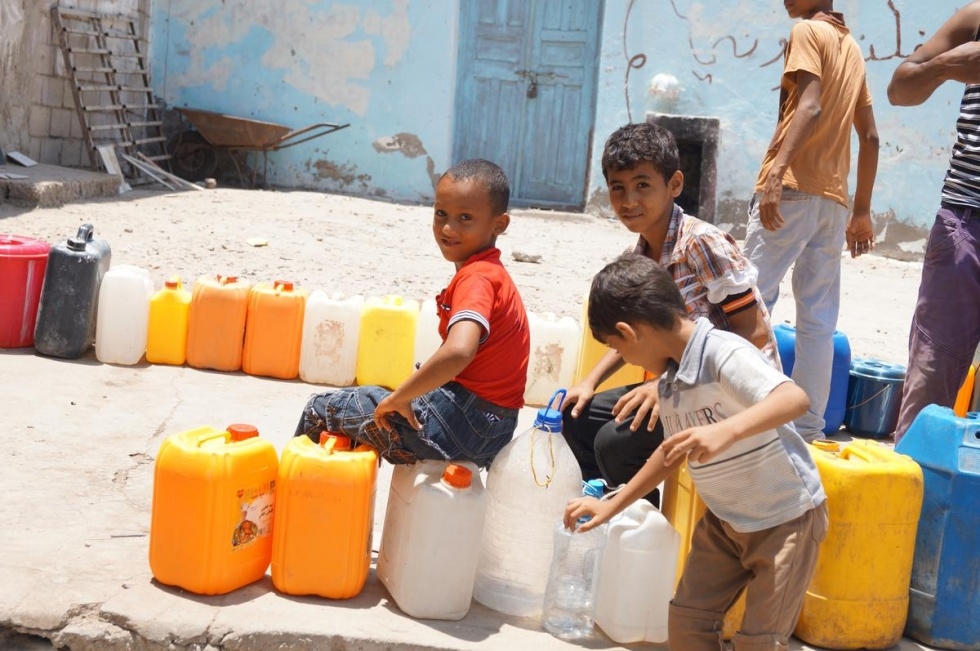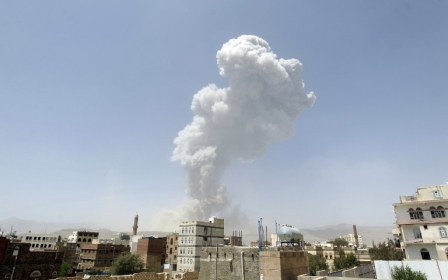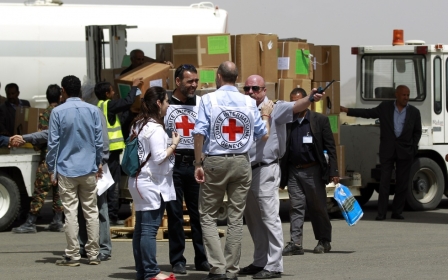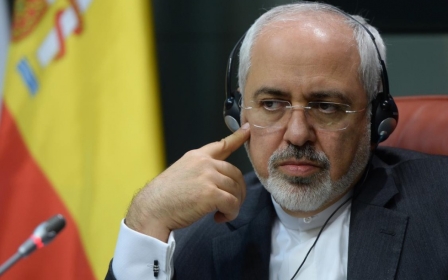In search of a new balance of power in the Middle East

Iran’s Supreme Leader Ayatollah Khamenei took more than two weeks to shun the Saudi-led operation, Decisive Storm calling it “genocide”. This is in contrast to the initial statements made by Minister of Foreign Affairs of Iran, Mohamed Javad Zarif that were diplomatic and cautious, saying “We will spare no effort to contain the crisis in Yemen.”
Similarly, while the president of Turkey, Recep Erdogan, has scorned Iranian foreign policy and has supported Decisive Storm, it was not so long until he was visiting Tehran along with a delegation of ministers, encouraging a peaceful solution. Similarly, Pakistan's Prime Minister Nawaz Sharif initially gave the coalition his full support and participation. On the other hand, its parliament, issued a contradictory statement.
Increasingly, political statements flourish as various countries' positions in the region suffer from lack of consistency. But why?
American disengagement
A highlight of Middle East regional politics would clearly be American disengagement from the region.
Stephen Walt, Harvard professor of international relations, argues that the best way for the US to pursue its strategic goals in the Middle East is through “a realist balance-of-power policy, akin to the policy followed by the US from 1945 to 1990." That is, “The United States didn’t need to dominate the region itself, it just had to make sure no one else did.” A policy named by the author and other global strategists as “offshore balancing”.
Walt adds: “When we talk about US strategy in the Middle East, therefore, we need to start by recognising that the United States is in very good shape, and a lot of what happens in that part of the world may not matter very much to the country in the long run. Put differently, no matter what happens there, the United States can almost certainly adjust and adapt and be just fine.”
This is perhaps why the US has removed Iran and Hezbollah from its list of “terror threats” and why it was silent for a long time as Houthis advanced only to support Decisive Storm after its launch. Thus, it is understandable why many Arab commentators see Yemen as a “trap” for Saudi Arabia as Sultan Qaboos of Oman reportedly informed King Salman.
High tensions and high stakes
The Saudi-mustered coalition was certainly the product of its diplomacy and new proactive leadership under King Salman. Without a doubt, the coalition behind Decisive Storm took Iran by surprise. More, for it to include Arab states beyond the GCC and Iran’s nuclear neighbour, Pakistan, was even more surprising. However, it was hastily formed in response to the Houthi takeover of Yemen. But as more time was given to absorb the repercussions and potential risks of a ground-troop response, supporting countries started having cold feet.
While Iran has certainly been a belligerent neighbour, extending its direct influence over four countries in the region, nevertheless nations such as Pakistan and Turkey have mutual interests with Iran that cannot be ignored.
Turkey and Iran - who share a border with one another - have plenty of common interests that would prompt them to peacefully solve conflicts. Despite sharply diverging positions and opinions on regional politics, namely on Syria, trade between the two countries still continues. After Erdogan’s last visit, both countries expect to double the volume of trade up to $30bn. Furthermore, Iran exports 10 billion cubic meters of gas to Turkey, making Iran the second largest exporter of gas to Turkey, and Turkey its biggest customer.
The strategic relevance of Yemen to Turkey may not be that important, but Syria certainly is. Turkey is likely to press Iran on Syria and less so on Yemen. But Turkey’s needs for Saudi Arabia to solve the crisis in Syria imposes a serious economic and security burden on Turkey. There have been talks about ousting the government of Bashar al-Assad, but nothing is solid yet.
Similarly, in Pakistan many argue that their country is not in a position to send troops abroad and anger its Iranian neighbour. With tensions on the Indian border and a militancy problem of its own, along with a considerable Shiite minority and already existing sectarian strife, Pakistan will be cautious about having troops on the ground in Yemen. If Iran starts viewing Pakistan as a foe, it can easily stir up more problems.
While Pakistan will be primarily motivated by its security risks in sending ground troops to Yemen, there is also a considerable economic concern. Pakistan has a major gas pipeline project in progress with Iran that is set to be completed in late 2016 or early 2017. The pipeline should have been operating at the end of last year. However, Pakistan has not finished constructing its part of the pipeline and Iran could fine Pakistan $3 million a day in penalties for this delay.
Saudi options
Amidst the regional turmoil, US relative disengagement with the region, and shifting balances of power, each country has to prioritise its interests and realign itself with the new realities of the region. The many ongoing, fast-paced changes in the region have created power vacuums that different regional players are competing to fill. The US is seemingly more indifferent about the turn of events in the region and thus it becomes incumbent on the various countries in the region to take the initiative and the subsequent risks as well.
Turkey and Pakistan are only two of the countries in the region with their own internal struggles and external interests. The complex network of relations in the region make it very difficult to find a balance, considering countries’ simultaneous weight, bilateral interests and conflicts. Each country will attempt to wisely pick its battles, and push forth its interests without breaking ties with partners or even adversaries.
Saudi Arabia has already achieved a huge diplomatic victory in its own right with the recently passed resolution of the UN Security Council. Russia abstained from voting instead of vetoing the resolution it did not agree with. The resolution is in line with Saudi interests, but still, the Saudi lead coalition cannot make a decisive victory with airstrikes alone.
Saudi Arabia will likely continue shelling the Houthis and Ali Abdullah Saleh’s forces until they are even further weakened. An embargo is still in place and no weapons are reaching the Houthis, thus they cannot make up for their losses.
The aim is to bring the Houthis to the table without their weapons. Whether this is achievable or not, only time will tell. Saudi Arabia, so far, seems persistent in defeating what it deems a national security threat on its southern border. This may take much longer than expected. Saudi Arabia may have to heavily arm those in favour of the current legitimate president, Abd Rabbuh Mansur, including the Muslim Brotherhood’s Islah Party.
Ultimately, the conflict in Yemen is part of a regional rebalancing of power. A political settlement is inevitable, but only based on accords that appease all parties. Indeed, at this point, no involved party can afford to refuse some degree of compromise.
- Mustafa Salama is a political analyst, consultant and freelance writer. Salama has extensive experience and an academic background in Middle East Affairs.
The views expressed in this article belong to the author and do not necessarily reflect the editorial policy of Middle East Eye.
Photo: Children in Yemen line up to collect clean water (AA)
New MEE newsletter: Jerusalem Dispatch
Sign up to get the latest insights and analysis on Israel-Palestine, alongside Turkey Unpacked and other MEE newsletters
Middle East Eye delivers independent and unrivalled coverage and analysis of the Middle East, North Africa and beyond. To learn more about republishing this content and the associated fees, please fill out this form. More about MEE can be found here.





